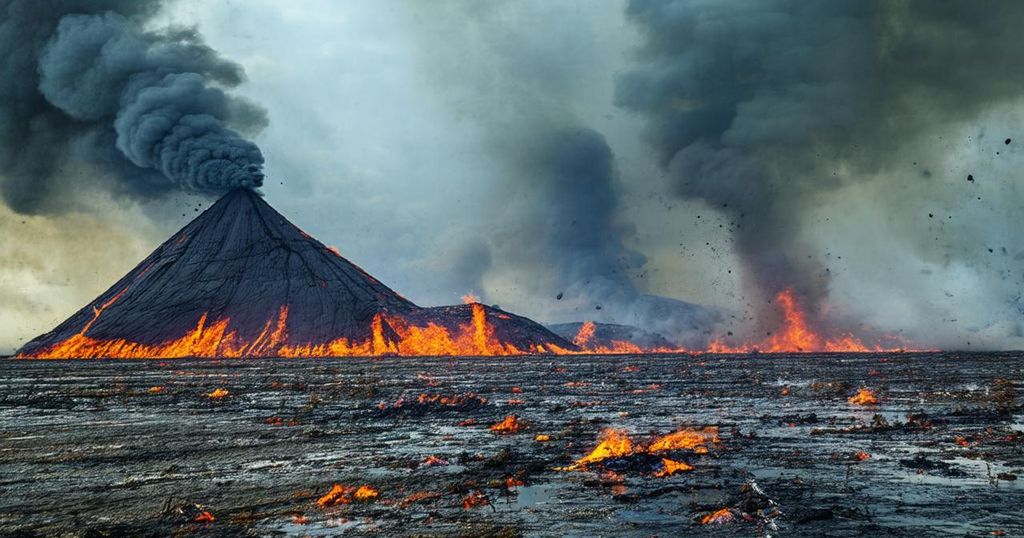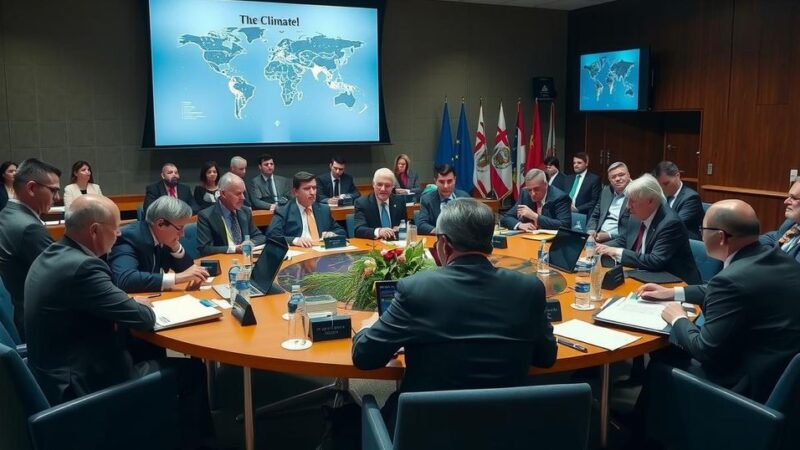In 2022, fragile and conflict-affected countries received only 25% of the required climate finance, amounting to $8.4 billion, while their needs reached approximately $35 billion. Nations like Chad, Somalia, and Yemen are particularly vulnerable yet receive insufficient support, highlighting significant disparities in funding. Investing in these regions is vital, as they are critically impacted by climate change and ongoing conflicts, necessitating urgent reforms in climate finance to address their unique challenges effectively.
The intersection of climate change, conflict, and fragility presents a critical challenge for the global community, particularly in 2022 when fragile and conflict-affected nations received merely 25% of the climate financing they required. Countries such as Chad, the Democratic Republic of the Congo, Somalia, Sudan, and Yemen exemplify this troubling trend, as they rank among the 25 most vulnerable to climate impacts while simultaneously possessing the lowest adaptive capacities. Recent analysis of data from the Organisation for Economic Co-operation and Development (OECD) indicates that these nations collectively secured a mere $8.4 billion in climate funding in 2022, falling significantly short of their estimated annual needs, which total approximately $35 billion as outlined in their Nationally Determined Contributions to the United Nations Framework Convention on Climate Change (UNFCCC). Furthermore, disparities in per capita funding reveal that these nations received far less than the median amount of $84, despite their heightened vulnerabilities. Notably, more stable Least Developed Countries and fragile Small Island Developing States have received higher per capita funding, highlighting a significant gap in resource allocation. Investments in hostile environments are undeniably fraught with challenges; however, as articulated by the World Bank, failing to address the climate needs of the fragile could result in two-thirds of the world’s extreme poor residing in such conditions by 2030. The intricate relationship between the debilitation of institutional capacities, infrastructure destruction, and the breakdown of social structures has left these nations markedly prone to climate shocks. As the international community prepares for COP29, it is imperative that measures be enacted to adapt climate finance architectures to the needs of fragile and conflict-affected areas. Such adaptation must entail revising existing funding mechanisms to respond promptly to the unique challenges these nations face while concurrently equipping local governance with the tools necessary for effective resource utilization. This paradigm shift requires the collaboration of stakeholders within the aid and development sectors to tackle the underlying causes of climate vulnerability. It is critical that COP29 witnesses a committed strategy to develop context-specific resilience projects in partnership with affected communities and governments. The urgencies expressed in the preceding COP28 should continue to guide this collaborative effort. Only through transformative actions can the international community meet its commitments to support those at the highest risk and avert potential disasters stemming from inadequate investment and planning in fragile and conflict-affected regions.
The issues of climate change and fragility are increasingly compounding crises for many nations where socio-political instability is prevalent. Fragile and conflict-affected countries not only experience the brunt of climate change due to their geographical vulnerabilities but also suffer from weakened capacities to respond to such challenges. Despite the recognition of these needs, funding flows are disproportionately allocated, leaving these nations under-resourced in efforts to adapt to inevitable climate impacts. The context of COP29 serves as a backdrop to demand urgent action and a reevaluation of how climate finance is administered, ensuring that the most vulnerable communities receive the support necessary to enhance their resilience.
In conclusion, the urgent need for increased and reformed climate finance to fragile and conflict-affected countries cannot be overstated. As these nations grapple with the dual challenges of climate vulnerability and socio-political instability, it is essential that the international community acknowledges their needs through concrete policies and collaboration. The path forward necessitates concerted efforts to foster resilience, enhance adaptability, and ensure that commitments made at international forums translate into meaningful actions for the most affected populations. Addressing these gaps is not merely a logistical necessity but a moral imperative essential for global sustainability and justice.
Original Source: odi.org






